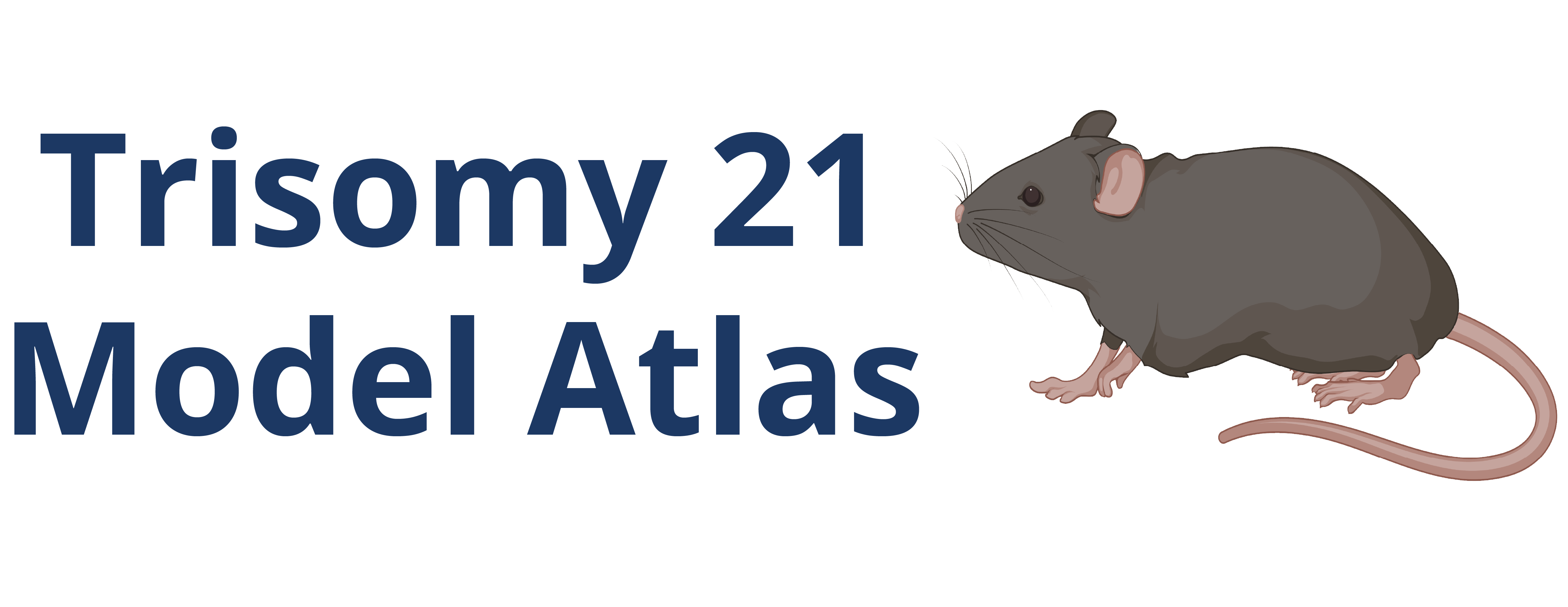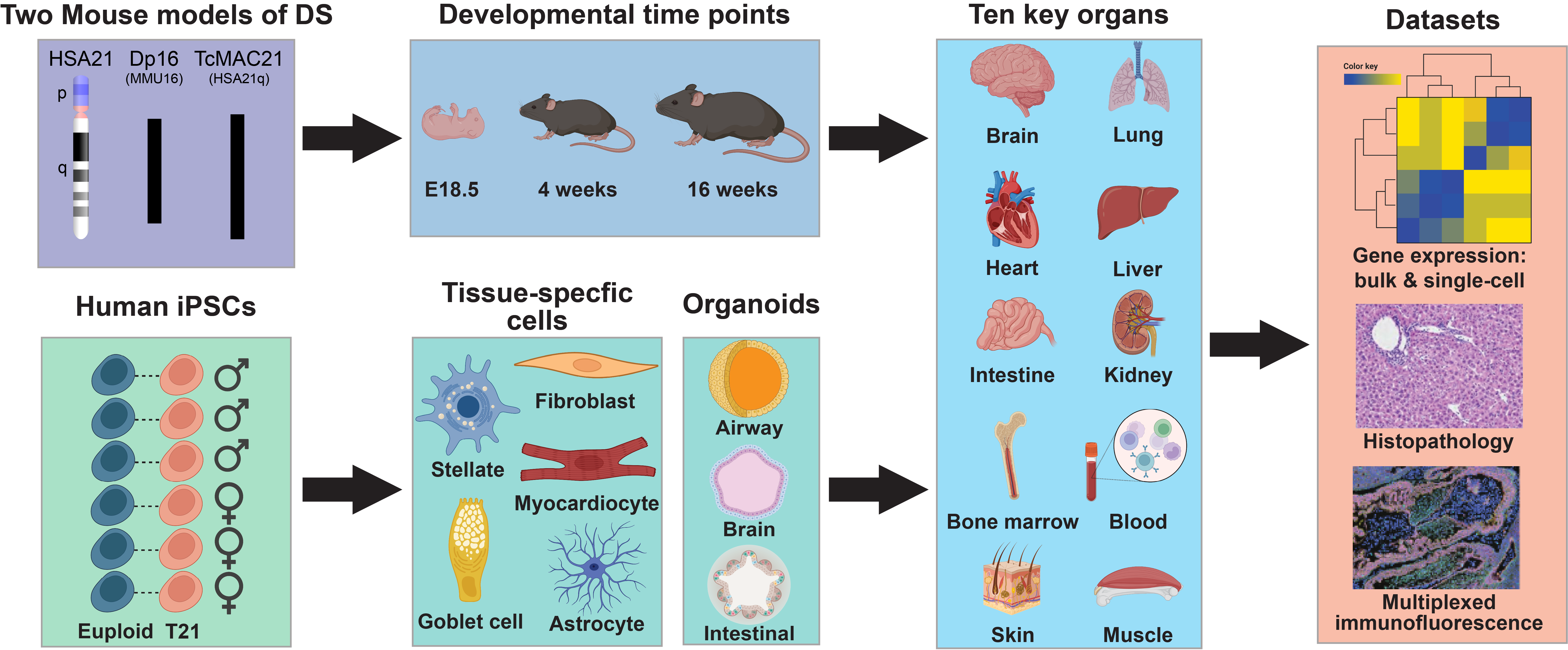Trisomy 21 Model Atlas
Grant Number: R24OD035579
Research Emphasis/Objectives

Down syndrome—also called trisomy 21 (T21)—is a genetic condition caused by the presence of an extra copy of chromosome 21. T21 is the most prevalent chromosomal abnormality and a leading cause of intellectual and developmental disability. T21 affects the development and/or function of nearly every organ system, predisposing individuals with T21 to many co-occurring conditions, including Alzheimer’s disease, congenital heart defects, and autoimmune disorders. Although it is known that T21 causes genome-wide dysregulation of gene expression programs, little is known about how T21 affects gene expression across different tissues and organs and how these effects contribute to the etiology of the co-occurring conditions of T21.

The main goals of the Trisomy 21 Model Atlas are to (1) generate a data resource containing tissue-specific murine and human transcriptomes matched to histopathology and (2) share the data through an open access researcher portal.
Current Research
The Trisomy 21 Model Atlas currently is in the data generation phase.
Contact Information
Principal Investigator
Matthew Galbraith, Ph.D.
Linda Crnic Institute for Down Syndrome
University of Colorado Anschutz Medical Campus
Aurora, CO
Email: [email protected]
Additional Contact(s)
Kelly Sullivan, Ph.D.
Email: [email protected]
Joaquin Espinosa, Ph.D.
Email: [email protected]



